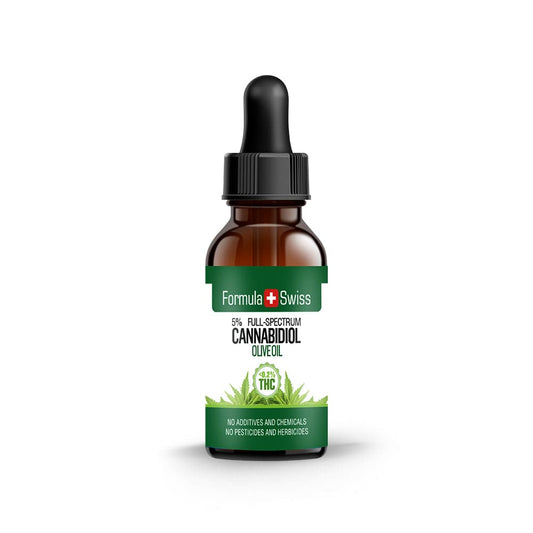Over the course of my work, I have taken a close look at many of the natural compounds found in the cannabis plant, and one that has recently drawn a lot of attention is hexahydrocannabinol, more commonly known as HHC.
With more than ten years of hands-on experience in the research, cultivation, and development of hemp-based materials, I have watched how interest in cannabinoids has steadily expanded, both in scientific study and in broader discussions about their use.
HHC, or hexahydrocannabinol, is a hydrogenated form of tetrahydrocannabinol (THC). It occurs naturally in very small amounts in Cannabis sativa, although it is more commonly produced through synthesis. It is often described as a psychoactive compound that shares certain similarities with THC.
The European Union Drugs Agency (EUDA) has noted that HHC began to attract attention in the early 2020s, especially through online platforms and specialty shops where it has been presented as an alternative to other cannabinoids.
Prefer watching over reading? This video covers the key points from the article:
Save up to 30% when you order your CBD oil today
Key Takeaways
- HHC, or hexahydrocannabinol, is derived from THC through hydrogenation.
- It is reported to produce psychoactive effects similar to those of THC.
- HHC is rarely found in cannabis plants in its natural form and is usually synthesized.
- Ongoing research is needed to better understand its properties and associated risks.
This article is provided for informational purposes only and does not relate to any of the products available in our webshop. For more information, please see our full disclaimer.
Chemical and Physical Data of HHC
HHC, or hexahydrocannabinol, possesses distinct chemical and physical properties. A closer look at its formula and structure provides key details relevant to laboratory and regulatory assessment.
The chemical formula of HHC is C21H32O2. Its structural formula—(6aR,10aR)-6,6,9-trimethyl-3-pentyl-6a,7,8,9,10,10a-hexahydrobenzo[c]chromen-1-ol—shows how hydrogenation alters the standard THC molecule.

Through hydrogenation, the cyclohexyl ring present in THC is modified, creating a molecule that is more stable and displays different binding properties.
| Chemical Formula | Structure | Molecular Mass (g·mol−1) |
|---|---|---|
| C21H32O2 | (6aR,10aR)-6,6,9-trimethyl-3-pentyl-6a,7,8,9,10,10a-hexahydrobenzo[c]chromen-1-ol | 316.485 |
This type of molecular information helps researchers recognize, examine, and compare how HHC behaves in both testing and experimental work. Further research is needed to better understand how HHC interacts in different environments and applications.
Synthesis of HHC
HHC can be produced from cannabidiol (CBD) through a sequence of chemical processes. Since it occurs naturally only in very small amounts, it is typically created in laboratory settings under carefully managed conditions.
Synthetic Methods for HHC Synthesis
- Benzene Ring Reduction Method: In this approach, CBD is transformed into HHC by reducing its aromatic ring structure through hydrogenation steps.
- Cyclohexanol Approach: Another route involves converting CBD into a cyclohexanol intermediate, which is then processed further to form HHC.
- Spectroscopic Techniques: Tools such as nuclear magnetic resonance (NMR) and mass spectrometry are used to confirm the structure and purity of the final compound.
Synthetic methods are under constant review as new pathways are explored and existing ones are optimized. These approaches aim to create reproducible and high-purity outputs suitable for analytical purposes.
It is critical that synthesis is performed only in qualified laboratory settings by professionals. The manufacturing and handling of HHC is subject to national and EU-level controls and must comply with applicable safety and legal standards.
| Synthesis Method | Advantages | Disadvantages |
|---|---|---|
| Benzene Ring Reduction | More direct conversion method | Involves sensitive or hazardous reagents |
| Cyclohexanol Approach | Alternative route for specific use cases | Greater synthesis complexity due to intermediate formation |
| Spectroscopic Techniques | Assures structural accuracy and purity | Requires costly and specialized equipment |
Order and enjoy up to 30% off your CBD oil purchase
Effects and Risks Linked to HHC
HHC is a cannabinoid that has been noted for producing effects similar to those associated with THC. However, scientific research into how it works in humans is still in its early stages.
A survey published in Cannabis and Cannabinoid Research noted that participants described experiences such as mood changes and a sense of relaxation. These observations are based on self-reported accounts and have not been confirmed through controlled clinical studies.
The full range of possible risks and long-term outcomes related to HHC is still unclear. Some people have mentioned difficulties with moderation or unpleasant reactions, but these are personal accounts and not supported by structured research.

Reports so far have included dizziness, stomach upset, and mood fluctuations. How often these occur or how strongly they may be experienced is not yet well understood, given the limited scientific data available.
Another important factor is that synthetic HHC can vary depending on the production method. These differences may affect consistency and could result in the presence of unintended byproducts.
At present, knowledge about potential effects linked to long-term or repeated use of HHC is limited. Continued research is needed to gain a clearer picture of its characteristics and impact.
Known Effects and Risks of HHC Use
| Reported Effects | Potential Risks |
|---|---|
| Psychoactive qualities similar to THC | Dizziness, digestive discomfort |
| Anecdotal comparisons to cannabis-related experiences | Variations in product consistency |
| Short-term user reports only | Unclear long-term outcomes |
Since information about HHC is still emerging, it is important to remain cautious and stay informed through trusted updates and professional perspectives.
Potential Dangers of HHC Use
There are several risks associated with HHC that warrant caution. Habitual exposure to HHC and other cannabinoids may contribute to behavioral patterns that raise concern, particularly among younger individuals. Prolonged and frequent use could negatively impact cognitive and emotional balance.
Beyond these considerations, using HHC during pregnancy may carry added concerns. Since its effects on prenatal development have not been studied in depth, it is recommended to approach with caution if pregnant or planning pregnancy.

Some people have also pointed out psychosocial effects, including lower motivation and difficulties with focus, particularly when HHC is used often. These issues may influence work, relationships, and overall day-to-day balance.
| Concern | Description |
|---|---|
| Potential Behavioral Dependence | Repeated exposure may encourage recurring patterns of use, which require further research. |
| Lung Irritation Risk | Inhaling vapor could pose risks to the lungs, especially if product quality is uncertain. |
| Pregnancy-Related Risks | There is little information on developmental outcomes, so use during pregnancy is discouraged. |
| Impact on Focus and Relationships | Frequent use may interfere with responsibilities at home or work, as well as personal connections. |
HHC Products and Availability
HHC is now offered in several product formats. These items are often positioned as alternatives to higher-THC cannabinoid products, appealing to those interested in exploring different profiles.

Such products are available through online stores, vape retailers, and some specialty shops. Their increasing presence highlights the importance of reliable production standards and consistent quality control.
The wide range of HHC formats includes:
- HHC Vape Cartridges: Cartridges filled with HHC extract, designed for use with compatible devices.
- HHC-Formulated Products: Topical items or other applications made with HHC.
- Low-THC Botanical Materials: Options that combine HHC with minimal THC content, offering varied cannabinoid compositions.
The HHC product landscape is rapidly changing, with new offerings introduced regularly. Understanding details such as origin, formulation, and manufacturing standards is essential when evaluating reliability and safety.
When considering such products, turning to trusted sources or professional input can help with more informed decisions, particularly given the ongoing developments in cannabinoid research.
| Product | Description | Advantages |
|---|---|---|
| HHC Vape Cartridges | Contain HHC extract and work with compatible vape pens or devices |
|
| HHC Formulations | Items developed with HHC, including topicals and other non-ingestive types |
|
| HHC Extracts | Concentrated HHC forms created for varied applications |
|
| Low-THC Cannabis Materials | Botanical products combining HHC with minimal THC content |
|
As interest in HHC expands, it is important to stay updated and make thoughtful choices. Keeping track of quality standards and changes in the industry supports both safety and awareness.
Order CBD oil now and save as much as 30%
Emerging Research and Monitoring of HHC
Research into HHC is still at an early stage, with studies underway to better define its properties, interactions, and potential implications.
The European Monitoring Centre for Drugs and Drug Addiction (EMCDDA) has been observing HHC through its EU Early Warning System (EWS) since October 2022. This initiative collects information to evaluate potential concerns related to new substances like HHC.
Since HHC is relatively new in terms of regulatory focus, ongoing study is important to understand how it behaves in different contexts. Monitoring by the EMCDDA offers a structure for recognizing trends and identifying possible public safety considerations.
These evaluations support better decision-making for policymakers and organizations, while also helping to track shifts in markets and usage patterns so responses can be more timely.

As more results become available, stakeholders including regulators, health bodies, and industry players will gain a stronger understanding of HHC’s role within cannabinoid research.
Personal Perspective
My experience in CBD and hemp production has offered me insight into both established and newly emerging compounds. Looking into hexahydrocannabinol (HHC) has been a chance to explore a cannabinoid that has been attracting growing attention.
While CBD and THC remain the most discussed, HHC is distinct due to its particular chemical profile and methods of production. It represents a valuable subject for those aiming to understand cannabinoids beyond the better-known names and how they are studied or regulated.
The purpose of this article is to provide clear, balanced information about HHC’s origins, synthesis, and observed features in order to support a fuller perspective on the subject.
My reason for writing about compounds such as HHC comes from a commitment to honest communication and clarity. Building understanding is essential for those working in research, production, or any area related to this evolving field.
Don’t miss out—save up to 30% when you purchase CBD oil today
Frequently Asked Questions
What is HHC (Hexahydrocannabinol)?
HHC is a hydrogenated derivative of THC. It contains added hydrogen atoms that alter the structure and make it more stable under heat and light.
Is HHC found naturally in cannabis plants?
HHC is present in trace amounts in cannabis, typically in pollen and seeds. Most HHC used in products is synthesized through hydrogenation.
How is HHC different from THC?
The main difference lies in stability. HHC is less prone to oxidation due to its saturated molecular bonds, whereas THC degrades more quickly in light or air.
Is HHC psychoactive?
HHC is reported to interact with cannabinoid receptors in a manner similar to THC, although its effects may differ in intensity and duration.
What methods are used to produce HHC?
Hydrogenation is the most common method, involving the addition of hydrogen atoms to THC in the presence of a catalyst, such as palladium.
Can HHC be detected in drug tests?
There is currently no definitive data regarding how standard drug tests respond to HHC or its metabolites. More research is needed to clarify this point.
What forms of HHC products are available?
HHC is typically found in formats such as vape cartridges and concentrates. These are intended for specific application methods, not oral use.
How does HHC compare to other cannabinoids like delta-8 or delta-10 THC?
HHC differs chemically due to its hydrogenation. It may share some psychoactive traits with delta-8 and delta-10 THC, but its effects are distinct due to its structure.
Is HHC a synthetic cannabinoid?
HHC is considered semi-synthetic because, although it exists naturally in minimal quantities, commercial versions are produced through laboratory processes.
Which cannabinoids produce a psychoactive effect?







